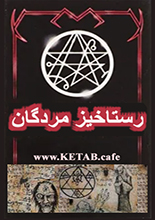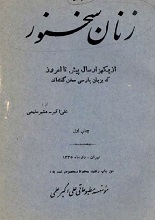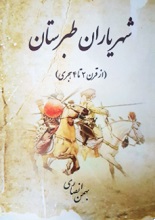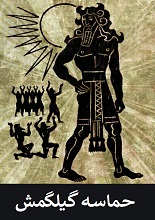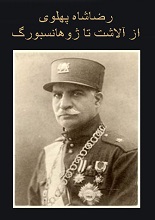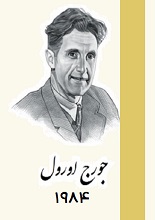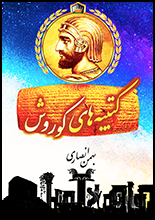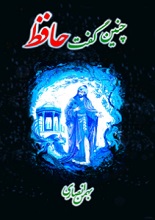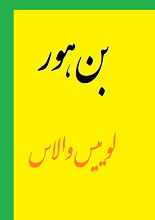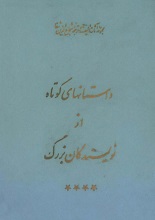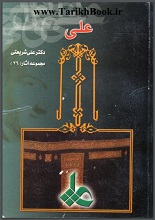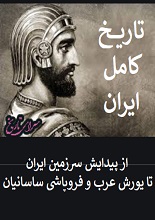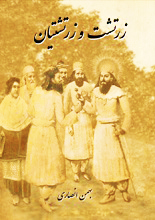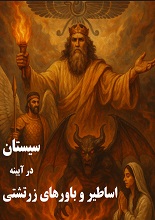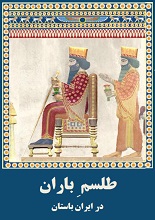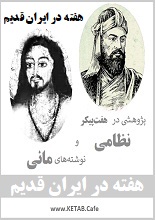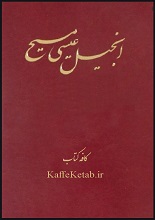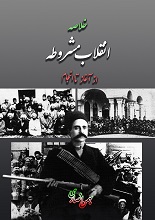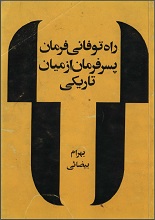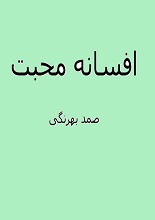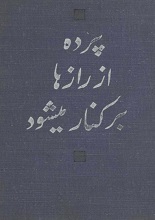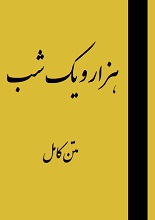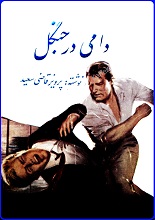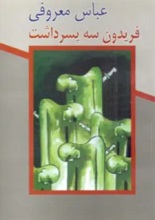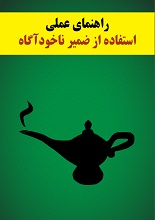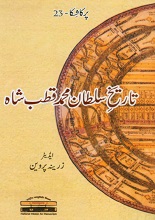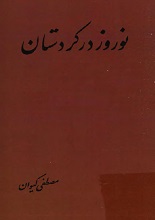“The History of the Prophets and Kings” also known as “Tarikh al-Tabari” and “History of Tabari” is a monumental historical work by the Persian scholar Muhammad ibn Jarir al-Tabari. This extensive chronicle, written in Arabic in the early 10th century, stands as one of the most significant sources for understanding the early history of Islam and the Middle East.
The Author: Muhammad ibn Jarir al-Tabari
Muhammad ibn Jarir al-Tabari (839–923 CE) was a distinguished scholar, historian, and theologian. Born in the region of Tabaristan, which is in modern-day Iran, al-Tabari was a polymath who made significant contributions to various fields of Islamic scholarship, including Qur’anic commentary (tafsir), jurisprudence (fiqh), and history. His works are highly regarded for their scholarly rigor and comprehensiveness.
Structure and Content of the Work
Al-Tabari’s “The History of the Prophets and Kings” ambitiously covers the history of the world from creation up to the events of his own time. The narrative begins with Islamic traditions regarding the creation of the universe, the stories of the prophets as recounted in the Qur’an and other Islamic texts, and extends through detailed accounts of Islamic history up to the early 10th century.
Al-Tabari employed a diverse range of sources to compile his history. These included oral traditions, earlier written works, and the Qur’an. His method was to present multiple accounts of the same events, allowing readers to see the different perspectives and to make their own judgments about the reliability of the various narratives. This comparative approach was advanced for its time and set a precedent for future Islamic historiography.
Historical Significance
The work is a cornerstone in the study of Islamic history. It provides a detailed chronicle of the early Islamic community, including the life of the Prophet Muhammad, the Rashidun Caliphs, and the subsequent Umayyad and Abbasid caliphates. For scholars and students of Islamic history, al-Tabari’s work is invaluable.
Al-Tabari’s historiographical method was innovative. By citing and comparing different sources, he offered a form of critical history that allowed for a more nuanced understanding of events. His approach influenced not only his contemporaries but also later generations of historians.
Notable Features of the Work
Al-Tabari’s narrative is detailed and engaging. He presents events in a chronological sequence, often with rich descriptions and anecdotal material that bring the history to life. This narrative style makes his work both informative and accessible.
Despite his religious convictions, al-Tabari is praised for his relatively objective treatment of historical events. He did not shy away from presenting conflicting accounts or controversial incidents, demonstrating a commitment to thoroughness and scholarly integrity.
“The History of the Prophets and Kings” has had a lasting impact on Islamic scholarship. It remains a primary source for researchers studying the early history of Islam and the Middle East. The work has been translated into various languages, making it accessible to a wider audience. Al-Tabari’s method of critical comparison of sources continues to be a model for historians.
“The History of the Prophets and Kings” by Muhammad ibn Jarir al-Tabari is a foundational text in Islamic historiography. Its comprehensive scope, meticulous methodology, and engaging narrative make it a seminal work for understanding the early centuries of Islamic civilization. Al-Tabari’s legacy endures through his contributions to the preservation and interpretation of Islamic history.
Al-Tabari’s meticulous compilation and comparative analysis of sources provided a balanced and comprehensive record of Islamic history. His legacy is not only evident in the field of history but also in the broader scope of Islamic scholarship and the development of historiographical methods.
Continuing Influence in Modern Scholarship
The influence of “The History of the Prophets and Kings” extends beyond medieval Islamic scholarship. Modern historians and researchers continue to rely on al-Tabari’s work for its rich detail and methodological rigor. His comprehensive approach provides a foundational reference point for studies in early Islamic history and the broader history of the Middle East.
Translations and Accessibility
Al-Tabari’s work has been translated into multiple languages, which has significantly increased its accessibility. One notable translation project was undertaken by the State University of New York Press, resulting in a multi-volume English edition that has made al-Tabari’s insights available to a global audience. These translations help preserve the work’s relevance and ensure that it remains a critical resource for both academic and general readers interested in Islamic history.
Scholarly Praise and Critique
Scholars have praised al-Tabari for his comprehensive coverage and methodological innovations. His work is often cited for its reliability and depth, providing a benchmark for historical scholarship. However, like any historical text, it is also subject to critique and re-evaluation. Some modern historians scrutinize his sources and interpretations, contributing to ongoing debates about the early Islamic period.
“The History of the Prophets and Kings” is commonly used in educational settings to teach about Islamic history and historiography. It offers students an example of how historical narratives were constructed in the medieval Islamic world and provides a wealth of information on a wide array of topics, from theological debates to political events.
Cultural and Religious Significance
Beyond its academic value, al-Tabari’s work holds significant cultural and religious importance. It helps contemporary readers understand the foundational narratives of the Islamic tradition and provides context for the religious, political, and social developments that have shaped the Islamic world.
“The History of the Prophets and Kings” stands as a testament to Muhammad ibn Jarir al-Tabari’s scholarly dedication and intellectual rigor. His ability to compile, compare, and analyze a vast array of sources has left an indelible mark on the field of history. As both a historical record and a piece of scholarly work, it continues to be a vital resource for understanding the complexities of early Islamic civilization and its enduring legacy.
Preservation and Manuscripts
The survival of “The History of the Prophets and Kings” through the centuries is a testament to the meticulous efforts of scribes and scholars who preserved and copied the manuscripts. Many of the existing manuscripts are held in prestigious libraries and institutions around the world, including the Topkapi Palace Museum in Istanbul and the British Library in London.
Modern critical editions of al-Tabari’s work have been produced by scholars who carefully compare different manuscripts to correct errors introduced by copyists over the centuries. These editions aim to provide the most accurate version of the text, ensuring that al-Tabari’s original work is preserved as faithfully as possible.
Thematic Exploration
A significant portion of al-Tabari’s work is dedicated to the religious narratives surrounding the prophets. These stories not only recount the lives and missions of the prophets but also explore their moral and spiritual lessons, reflecting the religious values and beliefs of the Islamic tradition.
Al-Tabari provides a detailed account of the political developments of the early Islamic community. His descriptions of the Rashidun Caliphs, the Umayyad and Abbasid dynasties, and the various conflicts and political struggles offer invaluable insights into the governance and political dynamics of the time.
Social and Cultural Context
Beyond the political and religious narratives, al-Tabari’s work also sheds light on the social and cultural aspects of the early Islamic world. He includes descriptions of everyday life, cultural practices, and the interactions between different communities, providing a holistic view of the society in which these historical events occurred.
Impact on Later Historiography
Subsequent Islamic historians, such as Ibn Kathir and Ibn Khaldun, drew heavily on al-Tabari’s work. His methodology and comprehensive approach set a high standard for historical writing in the Islamic world, influencing the way history was recorded and interpreted in subsequent generations.
Western scholars have also recognized the value of al-Tabari’s work. His detailed accounts provide a primary source for understanding the early Islamic period, contributing significantly to the field of Middle Eastern studies. The translation and study of his work have facilitated cross-cultural academic dialogue and enriched the global understanding of Islamic history.
همهچیز درباره کتاب تاریخ طبری
عاشورا در تاریخ طبری
خلاصه تاریخ طبری
تاریخ طبری (صوتی)
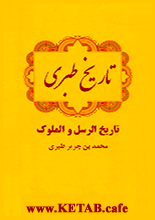
Challenges and Controversies
While al-Tabari’s comparative approach to sources was innovative, modern scholars often scrutinize the reliability of the various accounts he presents. Some narratives may reflect the biases and perspectives of their original transmitters, necessitating careful analysis and contextual understanding.
The interpretations of events and figures in al-Tabari’s work can vary significantly, reflecting the diverse viewpoints within early Islamic society. This plurality of perspectives can sometimes lead to conflicting interpretations among modern historians, highlighting the complexity of reconstructing historical narratives.
“The History of the Prophets and Kings” by Muhammad ibn Jarir al-Tabari is an unparalleled historical work that offers a rich and detailed account of the early Islamic world. Its comprehensive scope, meticulous methodology, and engaging narrative continue to make it an essential resource for scholars and students alike. Al-Tabari’s legacy endures through his contributions to the preservation and interpretation of Islamic history, providing invaluable insights into the religious, political, and social dimensions of early Islamic civilization.
The work’s ongoing relevance and impact demonstrate the enduring value of al-Tabari’s scholarship, ensuring that his name remains prominent in the annals of historical writing. As a foundational text, “The History of the Prophets and Kings” not only chronicles the past but also continues to inform and inspire future generations of historians and scholars.
Relevance in Contemporary Studies
Al-Tabari’s “The History of the Prophets and Kings” remains a vital source for contemporary researchers. Its comprehensive nature provides material for a wide range of academic inquiries, from religious studies to political science. Scholars often analyze al-Tabari’s work to understand the historiographical methods of early Islamic historians and to gain insights into the socio-political contexts of the periods he describes.
Modern historians use al-Tabari’s chronicle to compare Islamic historiography with other historical traditions. This comparative analysis helps to highlight the unique features of Islamic historical writing, such as its emphasis on prophetic history and the integration of religious and secular narratives.
Researchers from various disciplines, including anthropology, sociology, and literature, draw on al-Tabari’s work. The rich descriptions of cultural practices, social structures, and interpersonal relationships provide a wealth of information that can be analyzed from multiple perspectives. This interdisciplinary approach enriches the understanding of early Islamic society and its complexities.
Educational Impact
Al-Tabari’s work is a cornerstone in the curriculum for teaching Islamic history. Its detailed accounts of key historical events and figures provide students with a comprehensive overview of the early Islamic period. Educators use “The History of the Prophets and Kings” to illustrate the development of Islamic civilization and its historical context.
Students studying al-Tabari’s work are introduced to the principles of source criticism. They learn to analyze the reliability and biases of historical sources, an essential skill in historical research. By examining how al-Tabari used and compared different accounts, students gain insights into the challenges and methodologies of historical writing.
Influence on Islamic Culture
Al-Tabari’s narrative style and comprehensive storytelling have influenced Islamic literature. His work has inspired subsequent generations of writers and poets who draw on his detailed descriptions and storytelling techniques to craft their own narratives.
In addition to its historical value, al-Tabari’s work is significant in the context of religious education. It provides an in-depth understanding of the prophets’ lives and their moral and spiritual lessons, which are integral to Islamic teachings. Religious scholars and educators often reference al-Tabari to illustrate and explain religious concepts and historical contexts.
Preservation Efforts
Modern technology has enabled the digitization of al-Tabari’s manuscripts, ensuring their preservation and accessibility for future generations. Digital archives allow scholars and the public to access these texts easily, promoting wider dissemination and study of al-Tabari’s work.
Ongoing translation projects continue to make “The History of the Prophets and Kings” accessible to non-Arabic speakers. These translations are essential for expanding the reach of al-Tabari’s scholarship and for enabling a global audience to engage with his work.
“The History of the Prophets and Kings” by Muhammad ibn Jarir al-Tabari is more than a historical chronicle; it is a foundational text that continues to influence a wide array of academic fields and cultural practices. Its comprehensive scope, methodological rigor, and engaging narrative style make it an indispensable resource for understanding the early Islamic world.
Al-Tabari’s legacy is preserved through the meticulous efforts of scholars who continue to study, translate, and disseminate his work. His contributions to historiography and Islamic scholarship ensure that “The History of the Prophets and Kings” remains a pivotal reference for anyone interested in the rich tapestry of Islamic history.
As we continue to explore and understand the past, al-Tabari’s work provides a guiding light, illuminating the complexities and achievements of early Islamic civilization. His scholarship not only chronicles history but also shapes the way we interpret and value our historical heritage.
Download “The History of the Prophets and Kings” (History of Tabari) | free PDF
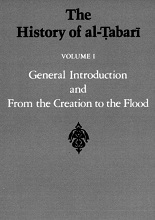
برای دانلود این کتاب، ابتدا باید عضو سایت بشوید.
پس از عضویت، لینک دانلود این کتاب و همهی کتابهای سایت برای شما فعال میشوند.
(قبلا عضو شدهاید؟ وارد شوید)
